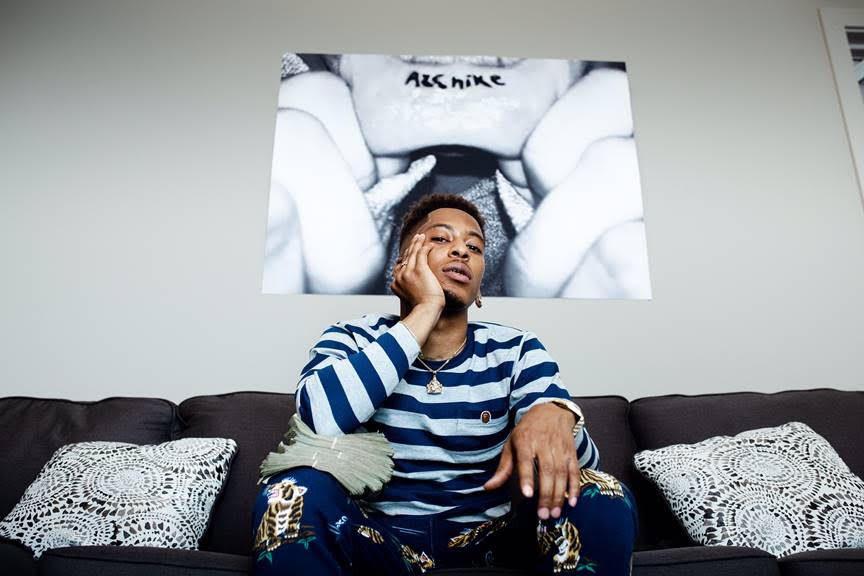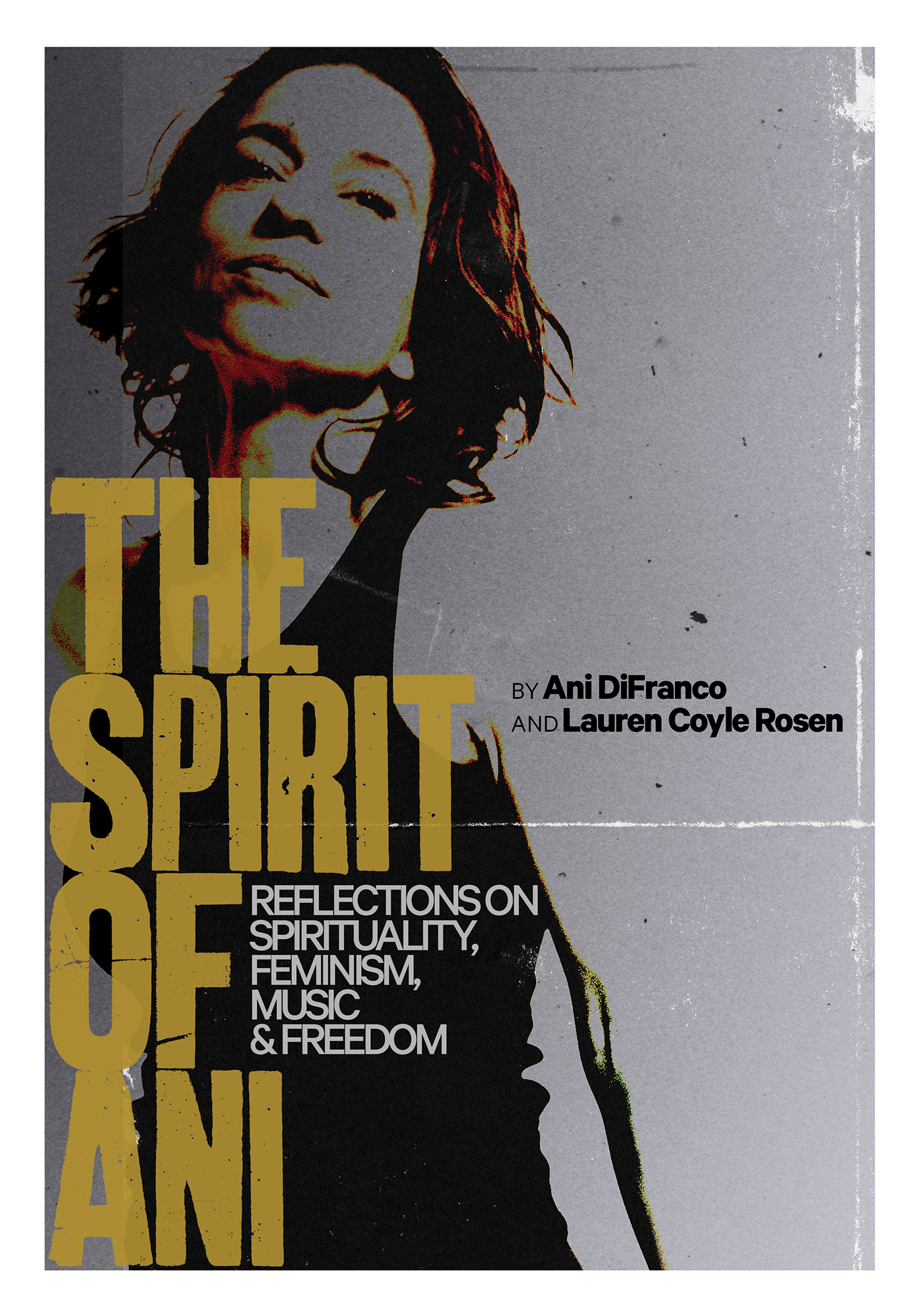We're entering a strange new period where there's no meaningful distinction between rap's underground and its mainstream. A regional scene can catch fire out of nowhere. A 16-year-old can blow up on TikTok. After the stultifying years-long dominance of Atlanta trap, other sounds are starting to get their moment in the rap sun. Things can happen fast. DaBaby can, in the space of a few months, go from a regional nobody to an A-list star. An out-and-out noise-rap experimentalist like JPEGMAFIA can get booked at the same festivals as Bad Bunny and Playboi Carti. A bedroom-recorded novelty song about being a cowboy can dominate the Hot 100 for an entire summer. It's exciting!
From a zoomed-out macro perspective, it can look like there is no such thing as underground rap anymore -- like there's only popular rap and rap that has not yet become popular, like the streaming era has ironed out regional eccentricities and mushed all these different sounds into one chilled-out post-Post Malone whole. But that's not what's happening. There's not just one rap underground. There are many rap undergrounds. Hundreds. There always have been. They're wildly spread-out and varied, so different that they might not recognize each other even if they're in the same cities.
I write this column once a week, and that's not enough. (I've thought about changing it into something more fluid.) Part of the issue is that there's too much good music -- albums that really demand full reviews even if they don't command huge audiences or say anything bigger about the overall direction of rap music. These are the undergrounds, the different movements happening all over the place. A couple of years ago, I wrote a column on a bunch of wildly different underground rap records that had caught my ear. And after a couple of jam-packed months, I'm doing it again.
I've already written in this space pretty recently about billy woods, the New York rapper who's made it his mission to chronicle a civilization's continuous wallow in cruelty and exploitation. Earlier this year, woods teamed up with the producer Kenny Segal to make Hiding Places, one of the best albums of 2019 in any genre. Barely six months later, he's back with the new solo album Terror Management. This one has a bunch of different producers (Blockhead, Steel Tipped Dove, Ka collaborator Preservation), but the aesthetic -- a fractured, jagged, lurching variant on New York boom-bap -- is the same. And on the album, woods uses this music to get expressionistic about a society that always seems to be looking for new ways to destroy its own people.
As a rapper, woods is blunt and concussive, and he's capable of summing up a whole lot of absurdity in a single bar: "Potemkin village outside Towson / Town square got a faux Italian fountain." (For me, that one hits close to literal home.) And he's a hell of a writer. Consider: "My advice: Don’t stop rhyming, UPS not hiring / And this ain’t the glory days, you can’t get consignment." "That’s three-round burst firing / It’s Miriam Makeba opening up for Paul Simon." "Shorty can’t eat no book, what I told Ta-Nehisi Coates." "Told my children Western education is forbidden / Might as well sell your Ritalin." All of those lines come from the same song. And woods also sketches out stories of enormous pathos in the space of a few lines: "When he got out, gave him the money / We both pretended it was a loan / Down the road, seen him looking bummy outside the liquor store / Hurried past like I ain't know him, something caught in my throat." It's another searing, overwhelming record from one of the best people doing it right now.
Sheff G is another hard, forceful New York rapper with a deep, resonant voice, but he's a product of a very different underground than billy woods. Sheff, from Flatbush, was one of the early breakout stars of Brooklyn drill, a variant on the genre that draws as much on UK drill as it does on the genre's Chicago roots. A few years ago, Sheff released a viral hit called "No Suburban" -- an intra-borough diss track with a hook catchy enough to become a sort of mantra. Brooklyn drill is hitting a maturation point, and Pop Smoke seems to be the genre's first real breakout star. (His mixtape Meet The Woo, Vol. 1 is one of the summer's stronger rap records.) But The Unluccy Luccy Kid, Sheff G's new mixtape, has its own sort of power.
Sheff G's voice is deep and heavy. He raps fast, weaving in gang signifiers and intricate gun-talk threats that outsiders like me can't decode without help. But he's also got a dancehall-derived melodic sensibility. He favors beats that are spare and eerie, tracks that fill empty space with florid pianos or Latin-music samples. Sheff mostly works only with frequent rap partner Sleepy Hallow, and the only outside collaborator on The Unluccy Luccy Kid is Mozzy, the gruff Sacramento hardass who shows up on "Menace" and whose presence makes a certain kind of sense. As with Mozzy, there's a suffocating hopelessness to Sheff G's music. "I been through the system / There’s nowhere to be, it’s come for that bread or you losing" -- that's not how billy woods would put it, but it's the same kind of thing that billy woods raps about.
The sound of young Los Angeles is a whole lot brighter and less heavy-hearted than the sound of young Brooklyn. In the past few years, a whole teeming scene of young Angelinos -- Shoreline Mafia, 1TakeJay, Rucci -- have taken inspiration from Bay Area hyphy, developing their own form of gleeful, silly, absurdist shit-talk over beats that sound like precise symphonies of car doors slamming. Blueface, who has something to do with this whole phenomenon, made it into the Billboard top 10 earlier this year, even though his music draws nothing from the prevailing rap trends in the rest of the country. And the South Central LA native AzChike, maybe my favorite young LA rapper, has a similar star quality, though he's even more absurdly ignorant than Blueface. (AzChike is pictured at the top of this page, since he's the rapper in this article with the best press photo.)
We're less than 30 seconds into Rich & Ratchet, AzChike's second full album of 2019, when he starts getting scatological: "Mama mia, diarrhea, I’ma shit on her / Put some gold on her neck, I’m a piss on her." There's no message to AzChike's music; he's practically a rapping insult comic: "My life like a movie and your life like a skit," "I'm balling like a Laker and you looking like a Clipper." Some of the jokes don't even make sense: "Pussy so good, when I'm done she need a nanny." He never stops talking shit. He's a shit-talking machine.
That seems like a limitation. It's not. For one thing, AzChike can really rap, high-stepping through militaristic bounce-beats with an effortless grace. For another, he's got energy. The tracks on Rich & Ratchet are relentlessly hooky and short enough to be hardcore. The album packs 14 songs into just over half an hour. It arrives like a whirlwind, and it leaves just as quickly.
Sauce Walka, from Houston, is just as funny as AzChike, and he's been around for longer. He's a classic rap livewire, a fired-up loudmouth with no filter and seemingly no concern for the wellbeing of his own career. He's a Gunplay type, an unpredictable bruiser with titanic skills that everyone acknowledges and a sense of pride that verges into self-destructiveness. Witness: The almost comically over-the-top 2015 anti-Drake manifesto "Wack 2 Wack," on which Sauce Walka fumes about Aubrey Graham feasting on Houston's sound and culture. But these days, Sauce Walka is doing great things by playing around with another city's style. In July, Sauce Walka guested on Buffalo hardhead Westside Gunn's "Lakers Vs. Rockets" and showed just how ferociously he could annihilate a loping New York-style boom-bap beat. And then, a month later, Sauce Walka spent a whole mixtape paying off that promise.
New Sauce City, the frankly staggering mixtape that Sauce Walka released in August, has no producer credits, so I don't know who's responsible for the hazy saxophone loops all over the tape. But it's clear that New Sauce City is a genre exercise, a Houston rapper adapting East Coast beats just to show that he can. And holy shit, can he ever. On New Sauce City, Sauce Walka is so devoted to the New York aesthetic that he went out and got a damn guest verse from Maino. And if his intent is to show that he can rap as hard as any New Yorker, then mission accomplished.
All through New Sauce City, Sauce Walka is an absolute demon. He's only 29, but he sounds grizzled and ancient, which suits that sound just fine. And he finds sharp, creative ways to flex and to illuminate everything that he's got at stake: "My baby bears’ll never search for porridge / Walker Rangered around Texas for that money, black Chuck Norris / Bought a Maybach NASCAR, black Jeff Gordon / But I still know people that's struggling, so that ain't important." The tape is short, less than half an hour, but it's astonishingly effective, and it leaves me wanting more. Somehow, it seems karmically appropriate that the best classicist boom-bap record of 2019 would come from a slumming Houstonian.
But they're also making really good boom-bap in Richmond, Virginia, of all possible places. The members of Richmond's Mutant Academy collective have been cranking out warm, conversational, casual '90s-style underground rap for a few years now, and they've shown no signs of slowing down. It's a hard scene to get ahold of, since there are so many rappers within the crew and since they put out so much music in so many different combinations. But Holly Water, the new album from the duo of Fly Anakin and Big Kahuna OG, is a pretty good place to start.
Fly Anakin and Big Kahuna OG have already released three EPs this year, but their easy give-and-take chemistry seems to work better at album length. They're both mellow, gravelly rappers, but their vocal timbres are different enough that they complement each other. They keep their voices buried in the mix, under layers of warm and bubbly psychedelic music, making for woozy and pillowy background music.It's a reassuring kind of traditionalism -- rap music as comfort food.
Those five albums come from rappers who will probably never collaborate with one another, and who might not ever even meet each other. They sound nothing like each other, and they sound nothing like most currently-popular versions of the genre. But all of them qualify as underground rap, and all of them are worthy of your attention.
FURIOUS FIVE
1. Mavi - "Sacrifices" (Feat. Navy Blue)
The hazy and contemplative North Carolina rapper Mavi just posted an entire album called Let The Sun Talk as a single unmixed half-hour track on SoundCloud. It's a lot to digest, and if I'd had more time with it, I probably would've included it in the column above. But for a more digestible version of what he does, this blurry and blunted horn-smeared internal monologue works beautifully.
2. Lucki - "Nascar Dashcar"
Immersive, transporting drug-rap from one of the masters of the genre. This song is two minutes long, and it could just as easily be 10. When you get into that zone, time stops mattering.
3. Nocturnal Sunshine - "Pull Up" (Feat. Gangsta Boo & Young M.A)
Nocturnal Sunshine is Maya Jane Cole, the British producer whose track "What They Say" became the spine of "Truffle Butter" a few years ago. (Man, remember "Truffle Butter"? Good song.) I'm typically suspicious of dance producers trying to make trap side projects, but putting two of the hardest woman in rap history on the same song wins a lot of points with me. And it wins more points if the song slaps, which this one does.
4. DC Young Fly - "Westside" (Feat. Snap Dogg)
DC Young Fly is a former Vine star and current cast member on the MTV sketch show Wild 'N Out. It turns out that this skillset is pretty well-suited toward making hard, energetic rap music. You shouldn't be able to rhyme "Martin Luther King" with "let the Uzi sing," but he pulls it off.
5. Chinese Kitty - "Opps" (Feat. Cuban Doll)
Please be aware that Chinese Kitty -- terrible rap name, just awful -- is out for your social security number. Be careful out there. (Good song.)
IT WAS ALL GOOD JUST A WEEK AGO
DaBaby made it lmao
— sage ? (@sageBiTT) October 3, 2019
the classic pose when The Rock heard his name ??? pic.twitter.com/NdS5BkSMft






